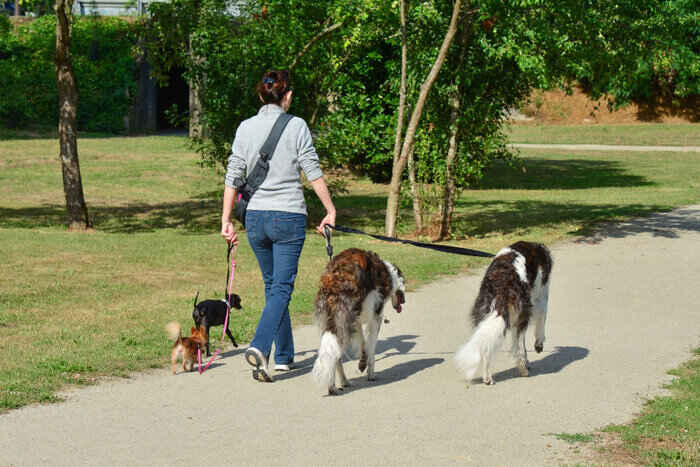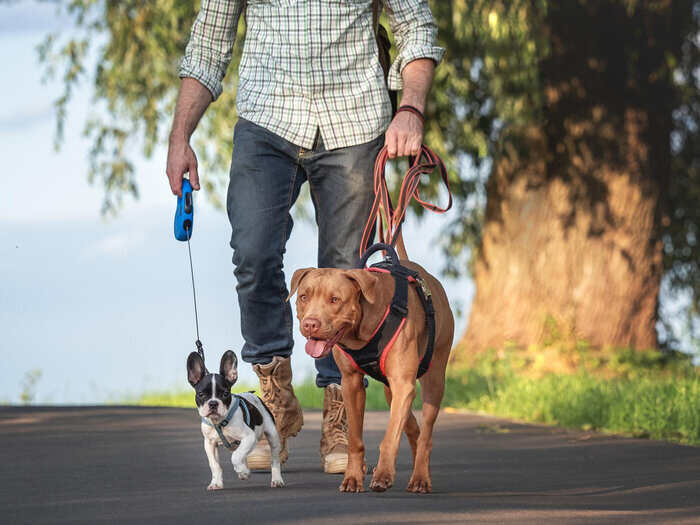Welcome to the ultimate guide on embracing one of the most rewarding roles you’ll ever take—becoming a fantastic pet parent!
Whether you’re dreaming of cuddles with a loving furry friend, already sharing your couch with a four-legged pal, or considering adding a new member to your family, you’ve come to the right place.

09 important tips you must follow to be a great pet parent
At The Start
Navigating the pet parenting world can feel like a juggling act, but fear not! From understanding their basic needs and micronutrients for your pets to mastering the art of proper nutrition and ensuring their safety and happiness, we’ve got you covered.
In this guide, we’ll walk you through 09 (nine) essential tips that will deepen your bond with your pet and ensure they lead a happy, healthy life by your side.
So, grab a comfy seat (and maybe your furry friend, too), and let’s jump into the joyful journey of pet parenthood. Because, let’s face it, being a good pet parent isn’t just about providing a home—it’s about creating a lifetime of love and care.
Tip 01: Research Everything To Become A Pet Parent
Doing your homework is essential before you want to become a good pet parent, or before you welcome a new furry, feathered, or scaly member into your family.
Understanding your prospective pet’s necessary needs, behaviors, and care requirements ensures that you’re fully prepared to be a pet parent for the commitment ahead.
Ask yourself, “Am I ready to adapt my lifestyle to meet the needs of my new companion?” Remember, each type of pet has its unique set of requirements for diet, exercise, social interaction, and healthcare.
Pet ID
Once you’ve decided on the perfect pet, the next step is equally important: giving your pet an ID and maintaining proper documentation and registration. This might seem like a small step, but it’s a giant leap toward ensuring your pet’s safety and your peace of mind.
Whether it’s a collar with an ID tag, a microchip, or both, having a way to identify your pet can make all the difference if they ever get lost. Keeping your pet’s paperwork and registration up to date is important for following the law and ensuring your pet’s safety.
Additionally, it helps demonstrate ownership if you and your pet become separated. Think of it as the first act of love and responsibility towards your new family member.
Tip 02: Know the Law to Be a Pet Parent
Becoming a pet parent isn’t just about cuddles and playtime; it’s also about understanding and adhering to the laws designed to protect you, your pet, and your community.
Laws and regulations regarding pet ownership can vary greatly depending on where you live. They may include requirements for vaccination, licensing, leash laws, and even restrictions on certain breeds or types of pets.
Related Search: Dog Related Laws in UK.
Why is this important?
Knowing the law helps you avoid fines, ensures your pet’s well-being, and contributes to a harmonious community. It also reflects your commitment to responsible pet ownership and animal welfare.
If you need help figuring out where to start, a quick visit to your local animal services department or a search on their website can provide you with all the information you need. Remember, being informed and compliant is a hallmark of a good pet parent.
Tip 03: Know the Basic Needs of Pet Animals
Becoming a pet parent means taking on the responsibility of another living being’s welfare. To do this well, you need to know and understand the basic needs of your pet. Here’s a brief breakdown:
Food:
Just like us, our pets need a balanced diet to stay healthy. But it’s not just about feeding them anything; it’s about giving them the right type of food that’s appropriate for their age, size, and species. Additionally, you have to know how much food you feed your loving friends.
Always follow the science diet philosophy for feeding your pets and opt for the best pet food that meets their nutritional requirements. Remember, a well-fed pet is a happy pet.
Water:
Always ensure your pet has access to fresh, clean water. Hydration is key to keeping them healthy and preventing illnesses. Make it a habit to check and refill their water bowl regularly.
Shelter:
Your pet needs a safe and comfortable place to call home. Whether it’s a cozy corner with a soft bed for your dog or cat, a well-maintained tank for your fish, or a secure cage for your bird, providing a proper shelter that protects them from the elements and gives them a sense of security is essential.
Exercise:
Physical activity is vital for your pet’s health. It keeps your pet fit, stimulates its mind, and helps prevent behavior problems. The type and amount of exercise needed can vary greatly depending on the type of pet you have.
Dogs, for example, generally need daily walks and playtime, while cats may enjoy interactive toys and climbing structures.
Love and Attention:
Never underestimate the power of love and attention if you would like to be a fantastic pet parent. Pets thrive on social interaction and bonding with their humans.
Spend quality time with your pet every day, whether it’s playing, grooming, or simply cuddling together. This strengthens your bond and helps them feel loved and secure.
Veterinary Care:
Regular check-ups with a vet are crucial to monitor your pet’s health, vaccinate against diseases, and catch any potential health issues early. An ounce of prevention is worth a pound of cure, especially regarding the health of your pets.

Tip 04: Proper Nutrition
As a pet parent, you should have the proper knowledge of nutrition for your dog, cat, or other pets. The saying “You are what you eat” holds for our pets just as much as it does for us.
Proper nutrition is the cornerstone of a healthy life for your pet. Here’s what you need to know:
Right Food for the Right Friend:
Different pets have different dietary needs. A diet perfect for a cat might not suit a dog, and what works for one breed may not suit another. Always choose high-quality food appropriate for your pet’s age, size, breed, and health issues.
Balanced Diet:
Your pet’s food should provide a balanced mix of proteins, fats, carbohydrates, vitamins, and minerals. High-quality commercial pet foods are formulated to meet these needs.
But it’s always a good idea to read the labels and understand what you’re feeding your pet. If you’re ever in doubt, your vet can provide recommendations.
Don’t forget fresh water. Alongside nutritious food, ensure your pet can access fresh, clean water. Hydration is as crucial as nutrition for maintaining your pet’s health.
Special Diets:
Like people, pets can have health issues requiring special diets, such as food allergies or sensitivities, obesity, or diabetes. Consult with your veterinarian to find the best diet plan for these conditions.
Treats and Snacks:
Who doesn’t love spoiling their pet with treats? While treats can be a great way to reward your pet, they should be in moderation. Treats should never make up more than 10% of your pet’s diet to avoid excess weight gain and nutrient imbalance.
Consult the Experts:
If you need more clarification about your pet’s nutritional needs, a veterinarian or a pet nutritionist can offer guidance tailored to your pet’s specific requirements.
Feeding your pet a proper diet is one of the most direct ways, as a fantastic pet parent, to show your love and care. It’s not just about filling their bowl; it’s about nourishing their body and soul. Remember, when it comes to proper nutrition, quality matters. Investing in your pet’s diet means investing in their health and happiness for years.
Tip 05: Regular Care with Veterinary Advice
Regular visits to the veterinarian are a cornerstone of responsible pet parenting. These check-ups are not just for when your pet seems unwell but are crucial for maintaining their overall health. Here’s why regular veterinary care is so important:
Preventative Health:
Routine check-ups can help catch health issues before they become serious. Vaccinations, sensitive stomachs, parasite control, allergic control, and dental check-ups are all part of preventing bigger health problems down the line.
Nutritional Guidance:
Veterinarians can provide personalized advice on your pet’s dietary needs, helping you make informed decisions about the type of food and supplements that are best for their health and lifestyle.
Early Detection:
Regular screenings for diseases common to your pet’s breed or age group can lead to early detection and treatment, significantly improving their chances of a positive outcome.
Behavioral Advice:
If you’re facing challenges with your pet’s behavior, a vet can offer advice or refer you to a specialist. This can help address any issues before they escalate, ensuring a happy home environment.
Establishing a good relationship with a vet you trust is invaluable for pet parenting. They become a partner in your pet’s health, providing guidance and support throughout your pet’s life.

Tip 06: Grooming
Grooming is part of great pet parenting. It’s often seen as a cosmetic concern, but it’s much more than that. Regular grooming sessions contribute significantly to your pet’s physical health and emotional well-being. Here’s how:
Skin and Coat Health:
As a pet parent, you have to do regular brushing and hair trimming. It will remove dead hair, dirt, and dandruff. It also helps spread natural oils throughout the coat, keeping it shiny and healthy. For certain breeds, professional grooming may be necessary to prevent matting and skin issues.
Nail Trimming:
As a pet parent, keeping your dog’s nails trimmed is a small but mighty part of pet parenting. Think about how annoying a pebble in your shoe is—that’s how your pup feels with long nails!
It’s not just about looks; long nails can lead to soreness, joint pain, and even nail injuries. A quick trim can make all the difference, ensuring your loving furry friend stays comfy and ready for playtime. It’s one of those simple things that greatly impacts their well-being.
Eyes, Ears, and Dental Care:
Keeping your pets such as dog’s eyes, ears, and teeth clean is key to being a great pet parent. Like us, your pets, such as dogs or cats, can get uncomfortable with dirt and germs in those sensitive spots, leading to potential infections.
Regular cleaning keeps them feeling good and lets you spot any unusual signs early on. Catching changes in appearance or odor means you can get your loving furry buddy to the vet sooner, preventing minor issues from turning into bigger ones. It’s a simple step that goes a long way toward keeping your pup happy and healthy.
Bonding Time:
Grooming sessions as part of pet parenting can be a wonderful bonding experience for you and your pet. It’s a time for gentle touches and close inspection, which can help you notice any unusual signs or changes in their health.
Grooming is not just about keeping your pet looking good; it’s an integral part of their health regimen. Whether done at home or professionally, make grooming a regular part of your pet’s care routine.
Tip 07: Training and Socialization
Training and socialization are the bedrock of your pet’s behavior and temperament. Here’s why they’re so important:
Builds a Strong Bond:
Training is not just about commands; it’s about communication. It emphasizes successful pet parenting. During the training period, a deeper bond forms as you and your pet learn to understand each other. Remember, it’s about teamwork, trust, and mutual respect.
Social Skills:
As a pet parent, introducing your furry friend to a mix of faces, furry pals, and new scenarios is like giving them a toolkit for confidence.
This social savvy they develop means they’re cool as cucumbers at the park or a bustling vet’s office. It’s all about helping them easily navigate the world, making your journey smoother and filled with more tail wags and purrs.
Safety:
Teaching your pet basic commands is a crucial part of pet parenting, beyond showing off cool tricks. It’s about safety—like having an invisible leash.
When you say “stay,” “come,” or “leave it,” and they listen, it’s a game-changer. It could be the difference between danger and safety for your loving furry friend.
As a pet parent, knowing you have this level of communication and control is reassuring; it could be a lifesaver.
Behavioral Problems:
Many common behavioral issues can be addressed with consistent training and socialization. This proactive approach can prevent problems such as excessive barking, chewing, and aggression from developing.
Start training and socializing your pet early, and consider it an ongoing part of their life. Learning new tricks is never too late, and the benefits extend beyond good manners.
Tip 08: Exercise and Mental Stimulation
Keeping your pet physically active and mentally sharp is a huge part of the pet parenting playbook. Like us, our pets need a mix of exercise and brain games to stay on top of their game.
It’s all about keeping them fit, happy, and out of mischief. Whether it’s a game of fetch, a puzzle feeder, or a new trick, mixing up their routine keeps their tails wagging and minds buzzing. Here’s how they contribute to your pet’s well-being:
Physical Health:
Regular exercise helps maintain a healthy weight, improves cardiovascular health, and can extend your pet’s lifespan. It also helps reduce the risk of obesity-related diseases.
Mental Health:
Boredom can lead to destructive behaviors. Mental stimulation, such as puzzle toys, training, or new activities, keeps their mind sharp and engaged.
Strengthen Bonds:
Activities together strengthen your relationship. Whether it’s a walk, a game of fetch, or an agility class, these moments are precious.
Behavior:
A tired pet is a good pet. Exercise and mental stimulation can help burn off excess energy that might be directed into less desirable behaviors like digging or chewing.
As a pet parent, seeing your furry buddy physically and mentally vibrant is the ultimate win-win. The key is to find activities that you both enjoy, and that suits your pet’s age, breed, and health status. Variety is the spice of life, so mix up physical exercises with mental challenges to keep things interesting.
Tip 09: Create a Safe Environment As A Part of Pet Parenting
Creating a safe environment as a fantastic pet parent is about more than just keeping the doors closed and the fence secure. It involves a proactive approach to preventing accidents and ensuring your pet can live happily without unnecessary risks. Here’s how you can achieve this:
Pet-Proof Your Home:
Just as you would baby-proof a house, pet-proofing involves removing hazards that could harm your pet. Secure electrical cords, ensure toxic plants and chemicals are out of reach, and keep small objects that could be swallowed far away from curious mouths.
Secure Outdoor Spaces:
If you have a yard or balcony, ensure it’s securely fenced or enclosed to prevent escapes. Check for poisonous plants, secure pools, and ensure there are no sharp objects or dangerous areas where your pet could get hurt.
Comfortable Resting Area:
Every pet needs a safe, cozy spot to call their own. Whether it’s a bed, crate, or a designated space on the couch, ensure it’s in a quiet area where they can relax undisturbed.
Temperature Control:
Pets can be sensitive to extreme temperatures. Ensure your home is comfortable, provide shade and water when it’s hot, and warm spaces during the cold months.
Emergency Preparedness:
Have a plan in place in case of emergencies. This includes having your vet’s number readily available, knowing the location of the nearest 24-hour animal hospital, and keeping a pet first aid kit on hand.
Creating a safe environment is an ongoing process that evolves as you learn more about your pet’s needs and habits. It’s about making your home a place where your pet can thrive, explore, and rest without harm.

Conclusion
There, you have nine essential tips for being a fantastic pet parent. From understanding their basic needs to ensuring their safety, each tip is a step towards a happier, healthier life for your pet.
Pet parenting is a journey filled with love, challenges, and incredible rewards. By following these guidelines, you’re well on becoming the best pet parent you can be.
Image Credit: Freepik (Premium Plan)





